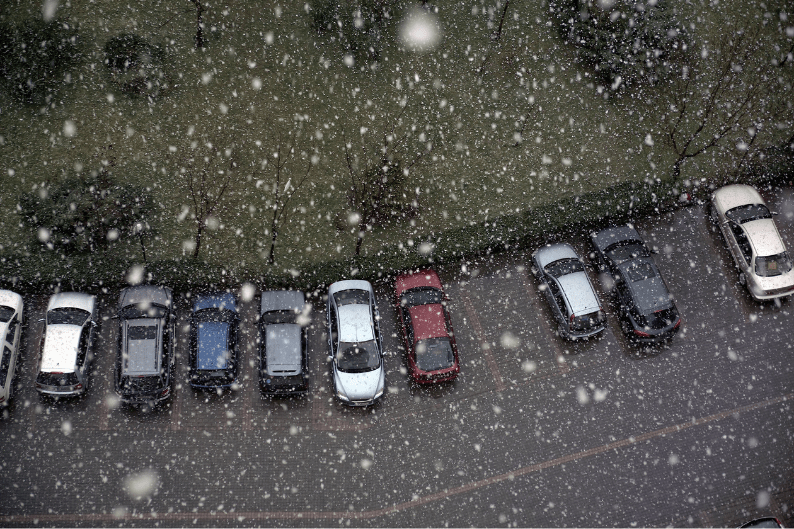8 Ways to Protect Your Vehicle from Adverse Winter Weather
In February 2021, a deadly winter storm devastated the Lone Star State. Freezing temperatures, sleet, and snow blew through Texas, leaving millions without power and over 200 people dead as a result of the storms. While no one can predict whether we will be hit quite as hard this year, it is always a good idea to be prepared.
At the Karam Law Office, we are proud to represent individuals across the State of Texas and Louisiana who have been hit hardest by these devastating disasters. If you have been denied an insurance claim related to a winter storm or other adverse weather, contact our office at (832) 859-8453 for a free consultation.
Consider these 8 ways to protect your vehicle during freezing weather:
1. Get Your Vehicle Winterized
One thing Texans learned about the deep freeze this past winter was that few of us are truly prepared for adverse winter weather. Scorching temperatures are no problem, but snow and ice can wreak havoc on non-winterized homes and vehicles.
If you have not already done so, consider taking your vehicle to a mechanic to have it serviced. Preparing your vehicle for colder weather conditions can help you stay safe in an emergency. A mechanic should complete a multi-point inspection of your car. They may also recommend special wiper fluid to prevent your wipers from freezing.
2. Check Your Battery
Few people expected to have to relocate in the middle of a blizzard last February, but when demand on the power system caused outages across the state, many people had to drive to friends and family to stay warm.
Save your battery by:
- Turning off the lights when parked;
- Testing your battery often;
- Unplug chargers and other devices;
- Keeping your battery tightly fastened; and
- Avoiding short trips.
KHOU 11 News also recommends driving your car around if you haven’t used it recently. Too often, people find out their battery is dead at the worst possible time. Checking your battery before colder weather comes can help protect you from a roadside emergency.
3. Park in a Garage or Carport
Keeping your vehicle out of extreme temperatures can help protect it from corrosion, battery failure, and more. If you are able to, you should always park your car in a garage or carport. Heat and cold can both affect your car’s performance; the more shelter you can provide, the better.
4. Check Your Engine
In addition to checking your battery, you should also check your engine. Engine failure is the last thing you want to deal with if you have to leave your home because of frozen pipes or a power outage.
To keep your engine running smoothly be sure to check and change. When having your vehicle serviced, ask the mechanic to flush your cooling systems and change the coolants. You can also have them look at your brake fluid to make sure that your car is ready for below-freezing temperatures.
5. Pack an Emergency Kit
All cars should have an emergency first-aid kit in them. You never know when you are going to need a bandaid or some antiseptic. You should also have a car first aid kit that includes jumper cables and a spare tire.
Snow and sleet or icy road conditions can make it difficult for roadside assistance vehicles to reach stranded cars. Having the equipment you need can keep you safe from inclement weather and freezing conditions.
Additionally, you should pack an extra set of warm clothes or blankets for any winter driving. If you do get stuck on the side of the road with a dead battery, you could be exposed to hypothermia from below-freezing temperatures. Preparing ahead for an emergency can save your life.
6. Always Travel with a Fully Charged Phone
It goes without saying that if you are planning on taking a long drive during the winter, you should have a fully charged phone. You may need to save battery power, so charging your phone may not be an option while you wait for emergency assistance.
You should also always travel with at least half a tank of gas in your car. Running on empty is never fun when weather conditions take a turn for the worse.
7. Check Tire Pressure
In Texas, black ice is a dangerous and potentially deadly reality for motorists. Low tire pressure can make it difficult to gain traction on already slick roads. Checking your tire pressure and traction should be one of the first things you do before winter weather hits.
8. Consider a Roadside Snack Pack
Finally, if you do have to drive during the winter months, consider packing some roadside snacks and water. Just remember to take the water out of your car once you park to prevent it from freezing.
Contact the Karam Law Office to Learn More
On behalf of the entire legal team at the Karam Law Office, we hope that you and your family have a safe and enjoyable winter. If you need any legal assistance, please do not hesitate to contact our office at (832) 859-8453. We offer free, no-obligation consultations and are available 24/7.




